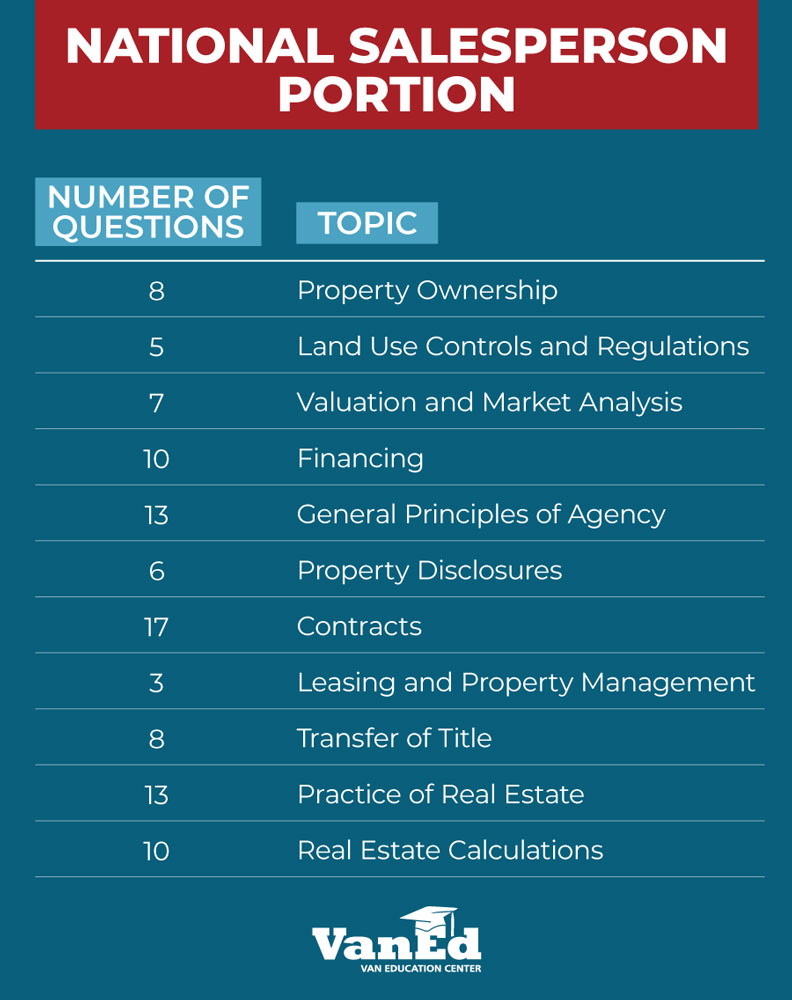
One of the most important questions you will ask when you start to think about getting a real estate license in Florida is what education you need to get started. This article will cover the amount of education required before licensure, the time commitment, and how you can make the most of it. We will also discuss which courses should be taken and what the cost of each course is.
Pre-licensing education
You need to take some pre-licensing classes before you can legally practice real estate. You must take at least 63 hours of pre-licensing education before you can apply for a license. The courses should cover mathematics, law principles, and real estate practice. Some courses are priced between $100 and $500. The minimum passing score required to be licensed in Florida is 70 percent. Attorneys don’t have to take any prelicensing courses. They can simply sit for the sales associate exam with no pre-licensing.

A variety of companies offer pre-licensing education in Florida for real estate. These courses may include self-paced courses that have practice exams. Others provide a variety study aids including textbooks and practice tests. No matter what your choice is, it's important to meet the state's pre-licensing requirements. There are several online programs that offer prelicensing education, and some of them are free.
Cost of prelicensing school
Pre-licensing education can cost anywhere from $100 to $1,000, depending on which state you are in. This is due to the fact that creating real estate courses takes a lot of energy and time. The companies who produce these courses have to pay their employees to keep the content up-to date and keep up with state legal requirements. While many brokerages and title firms offer continuing education classes for no cost, they are not always free. These courses are more thorough and longer than the other courses.
Regardless of the state you live in, the cost of pre-licensing education to obtain a real estate license in Florida is worth every penny. A Florida realty exam contains 100 multiple-choice items and a passing mark of 75%. There are 45 questions that examine real estate law principles and 10 questions which test your mathematical knowledge. If you study properly, you can expect to pass with a score of 75% or higher.
Pre-licensing education takes time
An individual must have a Florida realty license and be over 18 years. They must have completed at most 90 hours of education before they can be licensed and take a six-hour course about contract writing. They must have a good moral character and must disclose any criminal convictions. A person who has been convicted for a felony will not be eligible to receive a license as a real estate agent. They must also have their fingerprint cleared. Once they have been approved by their Broker online, they can then continue their education.

The applicant must be at the least 18 years of age and have a United States social security number. In addition to this, applicants must have a high school diploma. While real estate education isn't required to become a licensed broker in Florida, having the right foundation can make it easier to learn the ropes. A few states are recognized by Florida, including Arkansas, Georgia and Illinois. If applicants have a license in Florida as a real estate agent from one of these states, they are eligible for a license. Candidates from Arkansas and Connecticut, Georgia, Illinois, or Connecticut will also need to pass the state exam.
FAQ
How many times do I have to refinance my loan?
This depends on whether you are refinancing with another lender or using a mortgage broker. In either case, you can usually refinance once every five years.
What are the drawbacks of a fixed rate mortgage?
Fixed-rate loans are more expensive than adjustable-rate mortgages because they have higher initial costs. Also, if you decide to sell your home before the end of the term, you may face a steep loss due to the difference between the sale price and the outstanding balance.
What are the benefits to a fixed-rate mortgage
Fixed-rate mortgages guarantee that the interest rate will remain the same for the duration of the loan. This guarantees that your interest rate will not rise. Fixed-rate loans come with lower payments as they are locked in for a specified term.
What are the chances of me getting a second mortgage.
Yes. However it is best to seek the advice of a professional to determine if you should apply. A second mortgage is used to consolidate or fund home improvements.
Can I buy my house without a down payment
Yes! There are programs available that allow people who don't have large amounts of cash to purchase a home. These programs include government-backed mortgages (FHA), VA loans and USDA loans. More information is available on our website.
What is the average time it takes to get a mortgage approval?
It all depends on your credit score, income level, and type of loan. Generally speaking, it takes around 30 days to get a mortgage approved.
Which is better, to rent or buy?
Renting is usually cheaper than buying a house. However, renting is usually cheaper than purchasing a home. A home purchase has many advantages. You'll have greater control over your living environment.
Statistics
- Over the past year, mortgage rates have hovered between 3.9 and 4.5 percent—a less significant increase. (fortunebuilders.com)
- When it came to buying a home in 2015, experts predicted that mortgage rates would surpass five percent, yet interest rates remained below four percent. (fortunebuilders.com)
- This seems to be a more popular trend as the U.S. Census Bureau reports the homeownership rate was around 65% last year. (fortunebuilders.com)
- It's possible to get approved for an FHA loan with a credit score as low as 580 and a down payment of 3.5% or a credit score as low as 500 and a 10% down payment.5 Specialty mortgage loans are loans that don't fit into the conventional or FHA loan categories. (investopedia.com)
- The FHA sets its desirable debt-to-income ratio at 43%. (fortunebuilders.com)
External Links
How To
How to Manage A Rental Property
You can rent out your home to make extra cash, but you need to be careful. We'll help you understand what to look for when renting out your home.
Here are the basics to help you start thinking about renting out a home.
-
What factors should I first consider? Consider your finances before you decide whether to rent out your house. If you have any debts such as credit card or mortgage bills, you might not be able pay for someone to live in the home while you are away. You should also check your budget - if you don't have enough money to cover your monthly expenses (rent, utilities, insurance, etc. You might find it not worth it.
-
What is the cost of renting my house? There are many factors that go into the calculation of how much you can charge to let your home. These include factors such as location, size, condition, and season. It's important to remember that prices vary depending on where you live, so don't expect to get the same rate everywhere. Rightmove has found that the average rent price for a London one-bedroom apartment is PS1,400 per mo. This means that you could earn about PS2,800 annually if you rent your entire home. That's not bad, but if you only wanted to let part of your home, you could probably earn significantly less.
-
Is this worth it? Although there are always risks involved in doing something new, if you can make extra money, why not? You need to be clear about what you're signing before you do anything. Not only will you be spending more time away than your family, but you will also have to maintain the property, pay for repairs and keep it clean. These are important issues to consider before you sign up.
-
Are there any benefits? There are benefits to renting your home. There are many reasons to rent your home. You can use it to pay off debt, buy a holiday, save for a rainy-day, or simply to have a break. Whatever you choose, it's likely to be better than working every day. If you plan ahead, rent could be your full-time job.
-
How can I find tenants? After you have decided to rent your property, you will need to properly advertise it. Listing your property online through websites like Rightmove or Zoopla is a good place to start. You will need to interview potential tenants once they contact you. This will help you evaluate their suitability as well as ensure that they are financially secure enough to live in your home.
-
How can I make sure that I'm protected? If you fear that your home will be left empty, you need to ensure your home is protected against theft, damage, or fire. In order to protect your home, you will need to either insure it through your landlord or directly with an insured. Your landlord will likely require you to add them on as additional insured. This is to ensure that your property is covered for any damages you cause. This doesn't apply to if you live abroad or if the landlord isn’t registered with UK insurances. In this case, you'll need to register with an international insurer.
-
You might feel like you can't afford to spend all day looking for tenants, especially if you work outside the home. But it's crucial that you put your best foot forward when advertising your property. You should create a professional-looking website and post ads online, including in local newspapers and magazines. You'll also need to prepare a thorough application form and provide references. Some prefer to do it all themselves. Others hire agents to help with the paperwork. It doesn't matter what you do, you will need to be ready for questions during interviews.
-
What happens after I find my tenant?After you've found a suitable tenant, you'll need to agree on terms. You will need to notify your tenant about any changes you make, such as changing moving dates, if you have a lease. If you don't have a lease, you can negotiate length of stay, deposit, or other details. Remember that even though you will be paid at the end of your tenancy, you still have to pay utilities.
-
How do I collect the rent? When the time comes for you to collect the rent you need to make sure that your tenant has been paying their rent. You'll need remind them about their obligations if they have not. After sending them a final statement, you can deduct any outstanding rent payments. If you're struggling to get hold of your tenant, you can always call the police. They won't normally evict someone unless there's been a breach of contract, but they can issue a warrant if necessary.
-
What are the best ways to avoid problems? It can be very lucrative to rent out your home, but it is important to protect yourself. You should install smoke alarms and carbon Monoxide detectors. Security cameras are also a good idea. Check with your neighbors to make sure that you are allowed to leave your property open at night. Also ensure that you have sufficient insurance. You must also make sure that strangers are not allowed to enter your house, even when they claim they're moving in the next door.